 System Tutorial
System Tutorial
 LINUX
LINUX
 How to set up the network connection of the Linux system in the virtual machine?
How to set up the network connection of the Linux system in the virtual machine?
How to set up the network connection of the Linux system in the virtual machine?
For many students who are new to Linux, most of them choose to use a virtual machine to start learning. You can easily do experiments, modifications, and tests, and you don’t have to be afraid of problems, you can just mess around! At worst, if you change to a virtual machine, the original system will not be affected in any way. However, since it is not a physical PC, its use is inevitably limited. If the configuration is not good, later development will suffer!
For example, databases are used in many programs! MySQL, Redis. To establish a connection with them, especially remotely, you must specify the IP and port. How to configure a virtual machine so that Windows and Linux can be interconnected to facilitate access to the external network without frequent changes?
Preparation Phase
This short article explains the configuration of the Ubuntu operating system and graphical network environment in the Vmware virtual machine. The Vmware version used in this article is 15.1.0. The Ubuntu system version is 18.04.
First of all, before starting the configuration, you need to make preparations in advance and master some preparatory knowledge.
l Preparation: Make sure that ssh has been successfully installed in the Ubuntu system. You can use the aptitude command to view it.

l Preliminary knowledge: After successfully installing the Vmware virtual machine, we can find two network cards in our PC. Physical network card and virtual network card VMnet8. Physical network card, connected to WLAN. Virtual network card VMnet8, connected to the internal LAN. Make sure they are all enabled. If it is not enabled, right-click on the icon shown below and select "Enable".

Bridge Mode
Bridge mode configuration is the simplest! Use routers or switches to automatically allocate IP to achieve mutual access between windows and Linux.
The first step is to open the configuration page of the Vmware virtual machine. Select bridge mode.
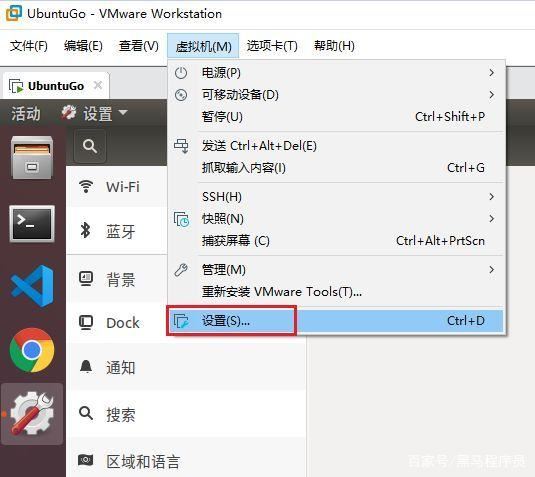
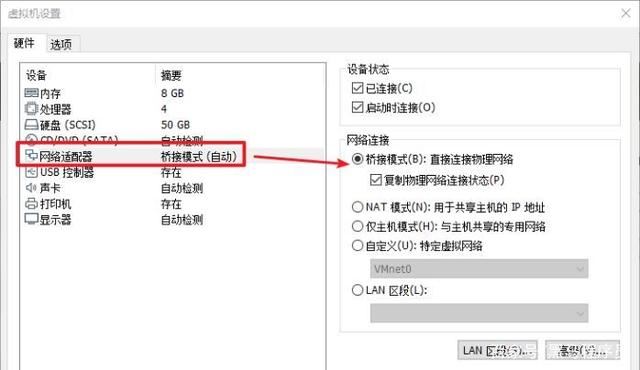
Step 2 Click the "Network" icon in the Ubuntu system, select "Wired Settings", click the " " sign on the pop-up page, and add a wired connection.
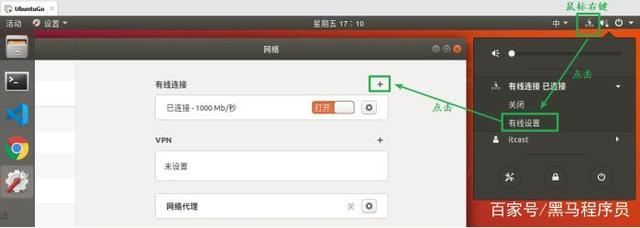
The third step is to set the name of the newly added wired connection so that you can recognize it by name. Then use its default attributes in IPv4. Confirm that everything is correct and click the "Add" button.
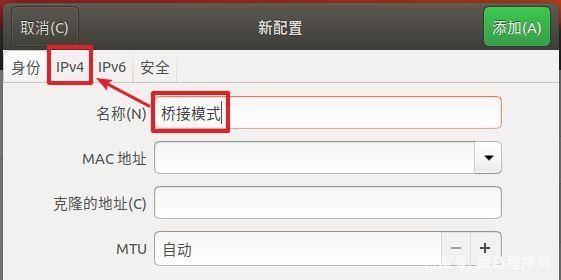
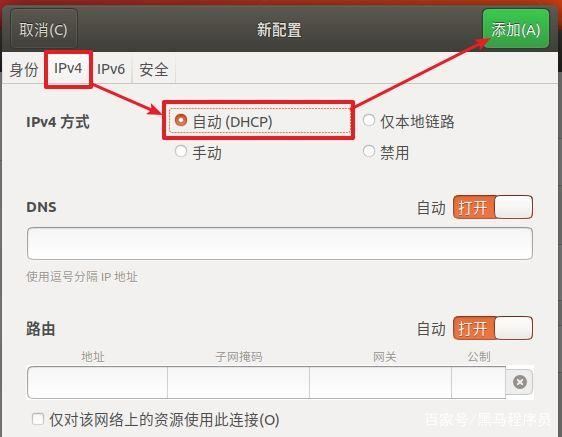
The fourth step is to choose to use the newly configured connection. You can see the generated Linux IP address corresponding to the new configuration on the page.
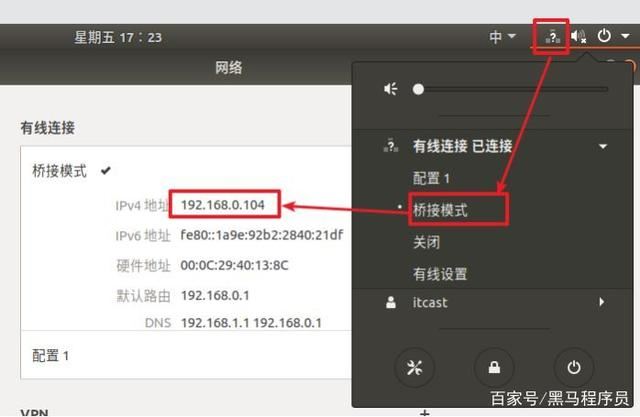
Alternatively, you can also type the "ifconfig" command in the terminal of the Linux system to view it.
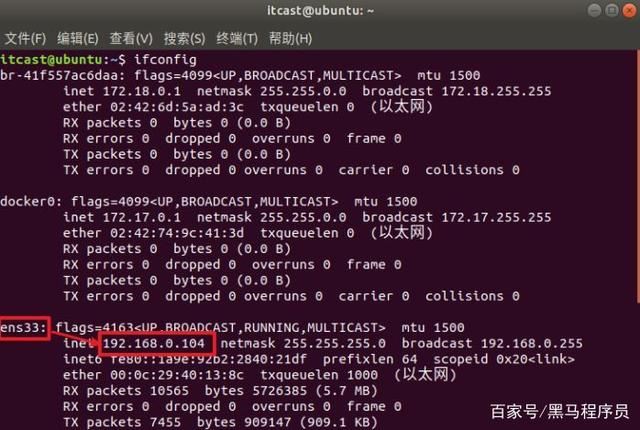
Use the "ipconfig" command in the windows terminal to view the IP address of the windows system:
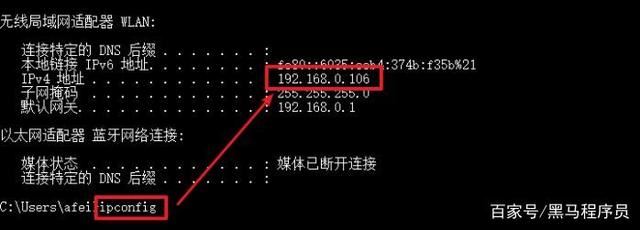
test. The two systems ping each other using the IP address of the other end. Because of the bridge mode used, it can be understood that your virtual machine deceives the router, making the router think that your virtual machine is a physical machine and assign it an independent IP address.
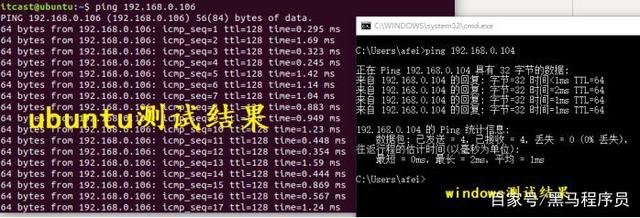
After passing the test, the windows and Linux systems can access each other with the help of the router! And if the router can connect to the external network, then both systems can have free and independent scope of the World Wide Web.
However, this connection method has certain problems!
Previous page12 Next page Read the full text
The above is the detailed content of How to set up the network connection of the Linux system in the virtual machine?. For more information, please follow other related articles on the PHP Chinese website!

Hot AI Tools

Undresser.AI Undress
AI-powered app for creating realistic nude photos

AI Clothes Remover
Online AI tool for removing clothes from photos.

Undress AI Tool
Undress images for free

Clothoff.io
AI clothes remover

Video Face Swap
Swap faces in any video effortlessly with our completely free AI face swap tool!

Hot Article

Hot Tools

Notepad++7.3.1
Easy-to-use and free code editor

SublimeText3 Chinese version
Chinese version, very easy to use

Zend Studio 13.0.1
Powerful PHP integrated development environment

Dreamweaver CS6
Visual web development tools

SublimeText3 Mac version
God-level code editing software (SublimeText3)

Hot Topics
 What is the Linux best used for?
Apr 03, 2025 am 12:11 AM
What is the Linux best used for?
Apr 03, 2025 am 12:11 AM
Linux is best used as server management, embedded systems and desktop environments. 1) In server management, Linux is used to host websites, databases, and applications, providing stability and reliability. 2) In embedded systems, Linux is widely used in smart home and automotive electronic systems because of its flexibility and stability. 3) In the desktop environment, Linux provides rich applications and efficient performance.
 What are the 5 basic components of Linux?
Apr 06, 2025 am 12:05 AM
What are the 5 basic components of Linux?
Apr 06, 2025 am 12:05 AM
The five basic components of Linux are: 1. The kernel, managing hardware resources; 2. The system library, providing functions and services; 3. Shell, the interface for users to interact with the system; 4. The file system, storing and organizing data; 5. Applications, using system resources to implement functions.
 How to learn Linux basics?
Apr 10, 2025 am 09:32 AM
How to learn Linux basics?
Apr 10, 2025 am 09:32 AM
The methods for basic Linux learning from scratch include: 1. Understand the file system and command line interface, 2. Master basic commands such as ls, cd, mkdir, 3. Learn file operations, such as creating and editing files, 4. Explore advanced usage such as pipelines and grep commands, 5. Master debugging skills and performance optimization, 6. Continuously improve skills through practice and exploration.
 What is the most use of Linux?
Apr 09, 2025 am 12:02 AM
What is the most use of Linux?
Apr 09, 2025 am 12:02 AM
Linux is widely used in servers, embedded systems and desktop environments. 1) In the server field, Linux has become an ideal choice for hosting websites, databases and applications due to its stability and security. 2) In embedded systems, Linux is popular for its high customization and efficiency. 3) In the desktop environment, Linux provides a variety of desktop environments to meet the needs of different users.
 What is a Linux device?
Apr 05, 2025 am 12:04 AM
What is a Linux device?
Apr 05, 2025 am 12:04 AM
Linux devices are hardware devices running Linux operating systems, including servers, personal computers, smartphones and embedded systems. They take advantage of the power of Linux to perform various tasks such as website hosting and big data analytics.
 What are the disadvantages of Linux?
Apr 08, 2025 am 12:01 AM
What are the disadvantages of Linux?
Apr 08, 2025 am 12:01 AM
The disadvantages of Linux include user experience, software compatibility, hardware support, and learning curve. 1. The user experience is not as friendly as Windows or macOS, and it relies on the command line interface. 2. The software compatibility is not as good as other systems and lacks native versions of many commercial software. 3. Hardware support is not as comprehensive as Windows, and drivers may be compiled manually. 4. The learning curve is steep, and mastering command line operations requires time and patience.
 Does the internet run on Linux?
Apr 14, 2025 am 12:03 AM
Does the internet run on Linux?
Apr 14, 2025 am 12:03 AM
The Internet does not rely on a single operating system, but Linux plays an important role in it. Linux is widely used in servers and network devices and is popular for its stability, security and scalability.
 What are Linux operations?
Apr 13, 2025 am 12:20 AM
What are Linux operations?
Apr 13, 2025 am 12:20 AM
The core of the Linux operating system is its command line interface, which can perform various operations through the command line. 1. File and directory operations use ls, cd, mkdir, rm and other commands to manage files and directories. 2. User and permission management ensures system security and resource allocation through useradd, passwd, chmod and other commands. 3. Process management uses ps, kill and other commands to monitor and control system processes. 4. Network operations include ping, ifconfig, ssh and other commands to configure and manage network connections. 5. System monitoring and maintenance use commands such as top, df, du to understand the system's operating status and resource usage.





